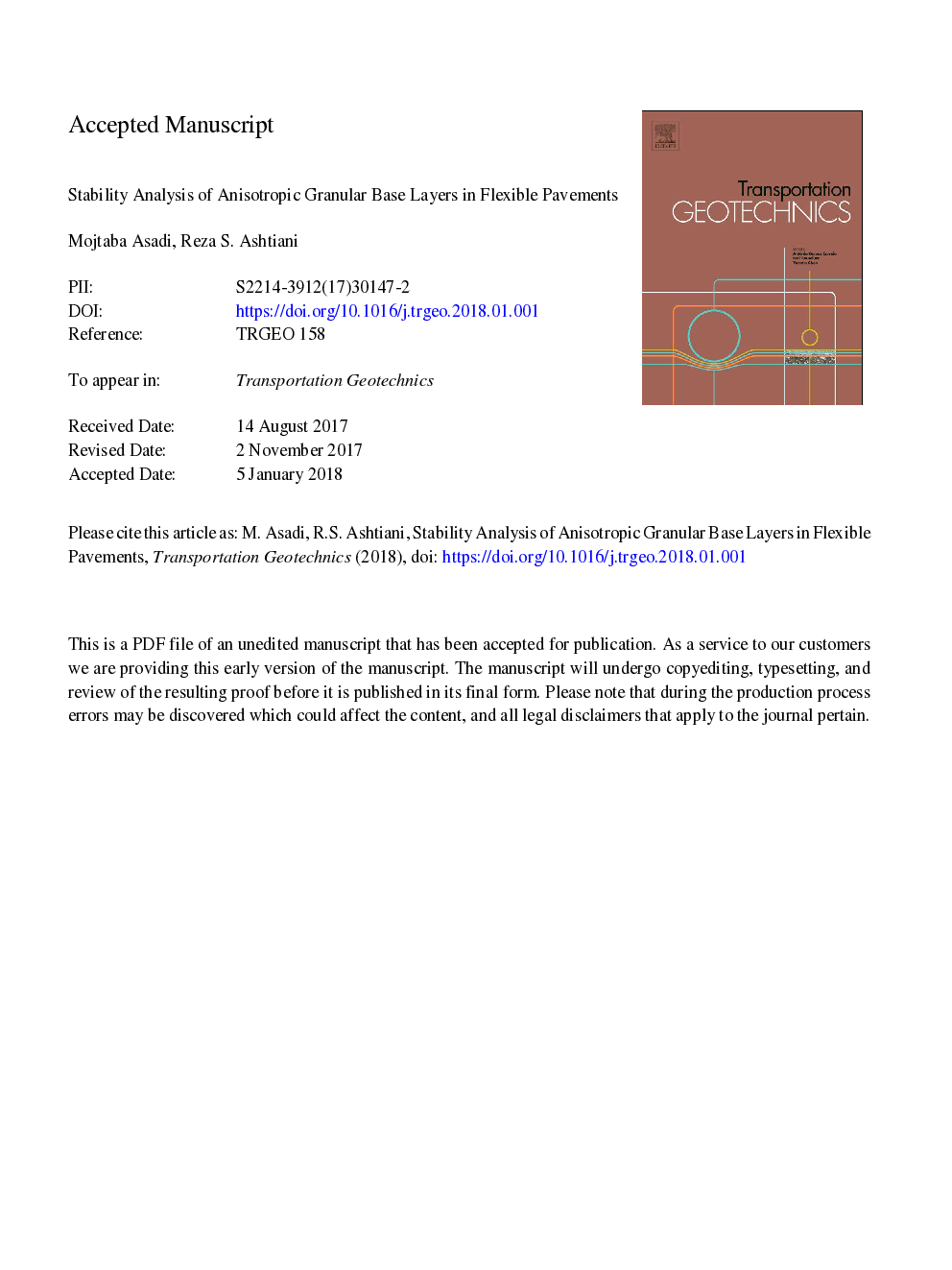| Article ID | Journal | Published Year | Pages | File Type |
|---|---|---|---|---|
| 6779537 | Transportation Geotechnics | 2018 | 26 Pages |
Abstract
The structural integrity of the unbound granular layers is of paramount importance for the design and analysis of multi-layer structures. The passage of slow moving vehicles in overload corridors can potentially compromise the stability of pavement foundations, and incur unforeseen costs to the travelling public. The likelihood of the destabilizing effect of overload traffic is more pronounced upon moisture intrusion due to infiltration or evapotranspiration. Additionally, due to the temperature and loading rate dependency of viscoelastic bituminous surface layers, the stresses transferred to the supporting granular layers will be more taxing in hot summer months. Therefore, it deems necessary to establish a mechanistic framework to characterize the synergistic influence of the moisture ingress and the parameters of the stress path to ensure the longevity of the granular layers. This research strives to bridge this gap by the development of an anisotropic protocol for the stability control of the granular layers. To achieve this objective, the anisotropic elasticity principles were employed to characterize the proximity of the applied stresses to the strength envelope of the particulate soils. The stability analysis presented in this research underscored the systematic error associated with isotropic characterization of granular layers. The numerical simulations showed that isotropic characterization of the base layer can potentially overestimate the structural capacity of unbound granular layers. This can manifest itself in premature failure of the pavement foundations. The findings of this research can be utilized by the pavement design industry and practitioners to mitigate costs associated with reconstruction and repair of pavements.
Keywords
Related Topics
Physical Sciences and Engineering
Earth and Planetary Sciences
Geotechnical Engineering and Engineering Geology
Authors
Mojtaba Asadi, Reza S. Ashtiani,
